Your code is correct and instances also. Here you have 1_000_001 n and for each n you call:
map(n.toString) = s"number $n"
map(key) = value is just syntactic sugar for calling update(key, value) function.
Let's look at update implementation of mutable.Map, by default it will be HashMap:
override def update(key: A, value: B): Unit = put(key, value)
go to the put:
override def put(key: A, value: B): Option[B] = {
val e = findOrAddEntry(key, value)
if (e eq null) None
else { val v = e.value; e.value = value; Some(v) }
}
protected def findOrAddEntry[B](key: A, value: B): Entry = {
val h = index(elemHashCode(key))
val e = findEntry0(key, h)
if (e ne null) e else { addEntry0(createNewEntry(key, value), h); null }
}
protected def createNewEntry[B1](key: A, value: B1): Entry = {
new Entry(key, value.asInstanceOf[B])
}
in the method createNewEntry new Entry is created. You call update on your map 1_000_001 times and key is always unique this is the reason you have 1_000_001 DefaultEntry objects.
